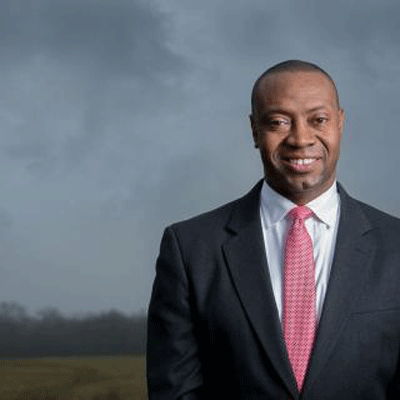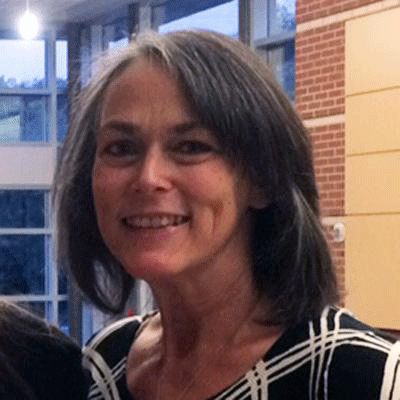Third panel convened during Columbia Theological Seminary conference urges churches to advocate and work for cleaner air
by Mike Ferguson | Presbyterian News Service

Photo by Daniel Olah via Unsplash
LOUISVILLE — The third and final panel that spoke as part of Columbia Theological Seminary’s “Just Creation” conference Saturday addressed the air we breathe after previous panels had taken on the Earth and water.
The panel, moderated by CTS theologian Dr. Martha Moore-Keish, featured these three authorities:
- Dr. Ted Hiebert, the Francis A. McGaw Professor of Old Testament at McCormick Theological Seminary
- Dr. Marshall Shepherd, the Georgia Athletic Association Distinguished Professor of Geography and Atmospheric Sciences Program at the University of Georgia
- Dr. Rebecca Watts Hull, assistant director of Faculty Development for Sustainability Education Initiatives at the Center for Teaching and Learning at the Georgia Institute of Technology.
When Old Testament writers refer the atmosphere, Hiebert said, they often use the Hebrew word “ruah,” which can mean “breath” or “spirit.” It means even more than that, he said, including the change of seasons or the thunderstorms that come in off the Mediterranean Sea. To them, “the breath coming into the human was God breathing breath into us” in the same way that the wind comes with the thunderstorm. “In ‘ruah,’ we have a holistic term — our breath, that thin white line [the Earth’s atmosphere], and it connects us and the world with God in an intimate way.”

Dr. Marshall Shepherd
Asked what one thing people need to understand about air, Shepherd, a climate scientist, said it’s that “humankind cannot alter air and climate.” A person of faith, Shepherd said it’s “not against scripture or faith perspectives to know we have altered our climate.”
“When faith-based communities, Fortune 500 companies and our military start getting vocal about the challenges of the climate crisis, we will make headway,” Shepherd said. “It’s very important for faith-based communities to engage on this topic.”

Dr. Ted Hiebert
Hiebert said that although he was taught in graduate school that the Bible is about history and not nature, “biblical writers just don’t make this distinction. They see God present in the world, and it’s a fantastic resource we have sort of lost. The Bible sees religious faith and commitment constantly embedded in a flourishing world.”
“As an educator and an activist, I am most concerned about what people understand about engaging and acting,” Watts Hull said. While air pollution and health challenges with air quality and climate change affect everyone, “it’s also true they don’t affect us equally … We pay attention to the things that affect us acutely, but what most people don’t realize is there are chronic effects.”

Dr. Rebecca Watts Hull
She said she’d like to see more congregations “do a lot more with advocacy” and “address their own ecological footprint.”
“My understanding of the climate crisis leads me to believe that individual actions won’t get us where we need to be,” Watts Hull said. She said this observation has informed her work at Georgia Tech: “People won’t engage in steps unless they have a feeling of efficacy.”
Shepherd said climate scientists including Dr. Katharine Hayhoe “talk about this: people think climate change is about polar bears or 2080. Those are important, but it’s about whether that bridge will withstand the next ice storm or hurricane … I matriculate in my ivory tower, but in faith-based institutions, you have the opportunity to talk about kitchen-table issues.” He called the church “a trusted institution among its constituents.”
Watts Hull teaches a course in organizing for social change. “I use positive stories from social movements showing how people won change in the world,” she said. “What ordinary people can change through collective action is extraordinary. That’s how I stay hopeful and help young people have hope in the face of the climate crisis.”
![]() You may freely reuse and distribute this article in its entirety for non-commercial purposes in any medium. Please include author attribution, photography credits, and a link to the original article. This work is licensed under a Creative Commons Attribution-NonCommercial-NoDeratives 4.0 International License.
You may freely reuse and distribute this article in its entirety for non-commercial purposes in any medium. Please include author attribution, photography credits, and a link to the original article. This work is licensed under a Creative Commons Attribution-NonCommercial-NoDeratives 4.0 International License.
Categories: Environment, Seminaries
Tags: air quality, Columbia Theological Seminary, dr. marshall shepherd, dr. rebecca watts hull, dr. ted hiebert, just creation
Ministries: Environmental Issues, Theological Education